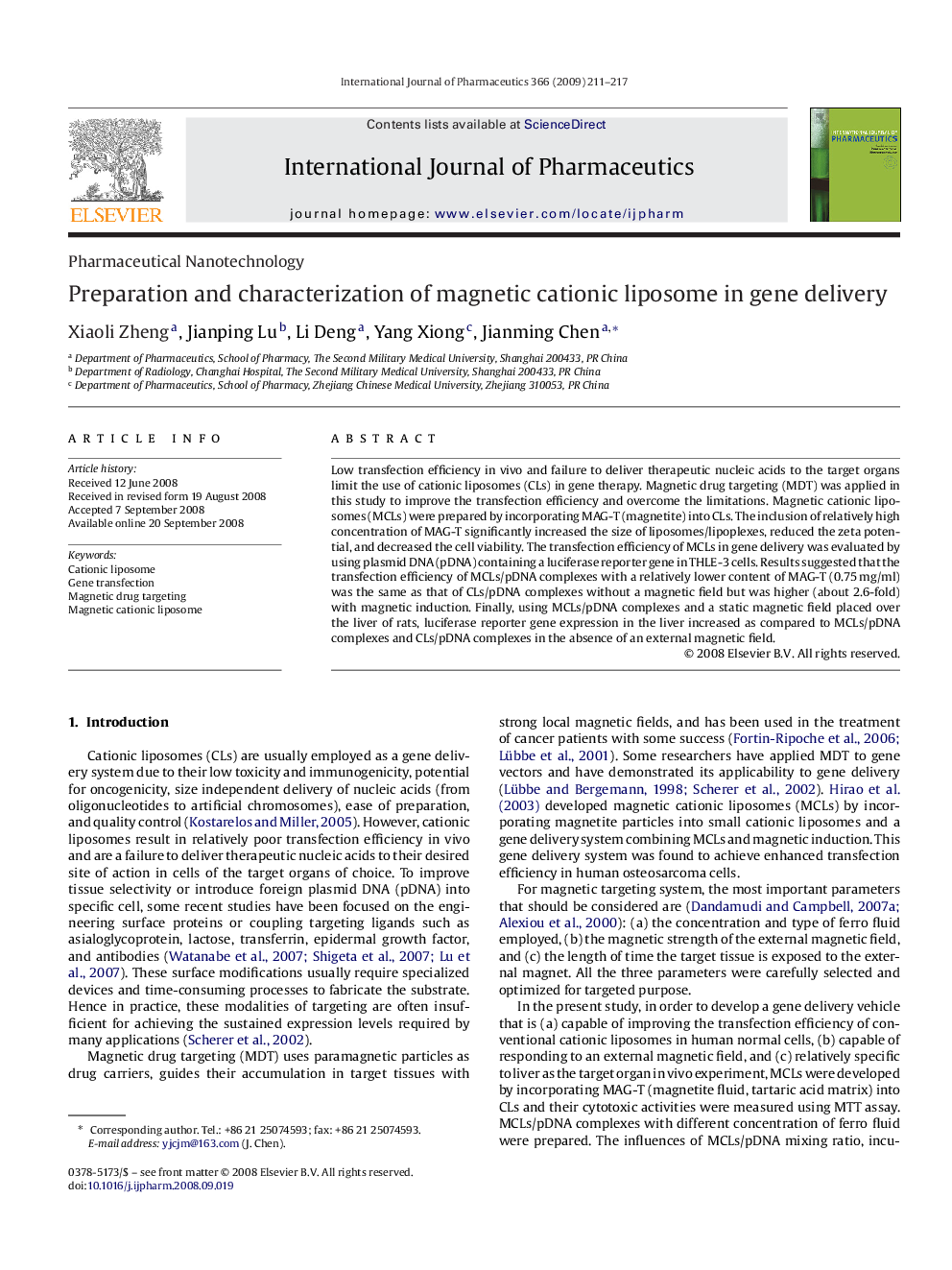| Article ID | Journal | Published Year | Pages | File Type |
|---|---|---|---|---|
| 2505185 | International Journal of Pharmaceutics | 2009 | 7 Pages |
Low transfection efficiency in vivo and failure to deliver therapeutic nucleic acids to the target organs limit the use of cationic liposomes (CLs) in gene therapy. Magnetic drug targeting (MDT) was applied in this study to improve the transfection efficiency and overcome the limitations. Magnetic cationic liposomes (MCLs) were prepared by incorporating MAG-T (magnetite) into CLs. The inclusion of relatively high concentration of MAG-T significantly increased the size of liposomes/lipoplexes, reduced the zeta potential, and decreased the cell viability. The transfection efficiency of MCLs in gene delivery was evaluated by using plasmid DNA (pDNA) containing a luciferase reporter gene in THLE-3 cells. Results suggested that the transfection efficiency of MCLs/pDNA complexes with a relatively lower content of MAG-T (0.75 mg/ml) was the same as that of CLs/pDNA complexes without a magnetic field but was higher (about 2.6-fold) with magnetic induction. Finally, using MCLs/pDNA complexes and a static magnetic field placed over the liver of rats, luciferase reporter gene expression in the liver increased as compared to MCLs/pDNA complexes and CLs/pDNA complexes in the absence of an external magnetic field.
